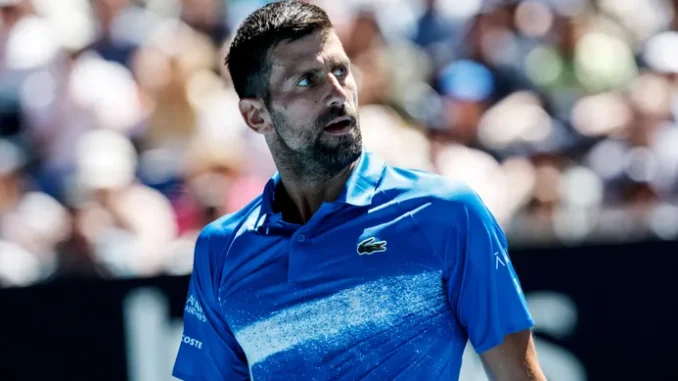
In the ever-evolving world of professional tennis, few players command as much attention as Novak Djokovic. His recent performances have sparked debate about his current form, particularly following an inconsistent start to the 2025 season. Renowned coach Paul Annacone, who previously worked with Roger Federer, weighed in on the discussion, offering a candid assessment of Djokovic’s situation and the unique scrutiny he faces as one of the sport’s greatest players.
Djokovic’s 2025 campaign has been a mix of highs and lows. After a deep run at the Australian Open, he suffered surprising early exits in subsequent tournaments, raising questions about whether he was beginning to show signs of decline. However, his dominant display at the Miami Open seemed to silence some of those doubts. Djokovic stormed into the final with an impressive 6-2, 6-3 victory over Grigor Dimitrov in the semifinals, proving that he remains a force to be reckoned with. With the win, he put himself on the brink of history, vying for what would be his 100th ATP singles title—an achievement that only a select few have reached.
Annacone pointed out an interesting reality that comes with being a player of Djokovic’s stature. “The great ones tend to make more news when they lose,” he observed, explaining that the heightened expectations placed on Djokovic mean that any setback is magnified. Given his unparalleled success over the years, even a minor dip in form attracts intense scrutiny from the media and fans.
The coach also highlighted one of the biggest challenges Djokovic currently faces—finding his match rhythm. “It’s tough for him to find his match rhythm, but I think he’s playing a little bit better each match,” Annacone noted. With fewer tournaments under his belt this year, Djokovic has had less match play compared to some of his younger rivals, which could explain the slower start to his season. Yet, as seen in Miami, he is steadily regaining his form with each appearance.
Another talking point from the Miami Open was the scheduling difficulties that players frequently encounter. Djokovic’s quarterfinal match against Sebastian Korda was postponed due to ATP rules that prevent matches from starting past 11 p.m. local time. Annacone questioned the rigidity of this rule, suggesting that more flexibility should be allowed in such situations. “If both players are willing, they should have the option to play,” he said, implying that adapting to circumstances could be beneficial for both athletes and the tournament schedule.
Beyond his on-court battles, Djokovic has also been vocal about larger issues in the sport, including the handling of doping regulations. His concerns have been echoed by respected figures like Severin Luthi, another former Federer coach, who acknowledged the importance of having clearer and more consistent anti-doping policies. While Luthi stopped short of directly criticizing the system, he emphasized that ensuring fairness and transparency should be a priority for tennis’s governing bodies.
As Djokovic prepares for the Miami Open final, the conversation surrounding him extends far beyond just his chase for another title. His career continues to be a focal point in discussions about the demands of longevity in the sport, the scrutiny placed on legendary players, and the challenges of navigating tennis’s ever-changing landscape.
Regardless of the outcome, Djokovic remains at the center of attention, with every match, win, or loss shaping the narrative of his extraordinary career. For now, his focus is on lifting another trophy, proving once again why he remains one of the greatest players of all time.
Leave a Reply